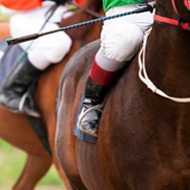
New regulations were announced yesterday by the FEI to ensure improved protection of the welfare of horses taking part in endurance events.
The new rules will include the introduction of athlete penalties for equine injuries, extended rest periods and increased accountability and responsibility of officials.
These decisions received the full support of delegates present at the endurance round table on the second day of the FEI Sports Forum in Lausanne (SUI).
John McEwan, FEI first vice president and chair of the FEI Veterinary Committee said: “The welfare of the horse is not just a veterinary issue, it's an issue for all those who work in the sport.”
As well as these new rules, a new FEI Endurance Codex has been produced which defines responsibility, accountability and sanctions for those in breach of the codex, to cover endurance officials, endurance athletes and registered trainers. This has also received support from the Endurance Committee.
These amendments will undergo a final review when they are circulated to National Federations, prior to going before the FEI Bureau at its in-person meeting on June 9 to 10 for approval and immediate implementation.
A debate session followed the proposal of these amendments. Delegates made a call for information about injuries at national events to be included in the Global Endurance Injuries Study (GEIS), and this received support from Dr Tim Parkin of Glasgow University, who was commissioned by the FEI to set up the study.
Dr Parkin said: “The FEI has done a great job of demonstrating what can be done with data that is currently available from FEI events and it is clearly going in the right direction.
“Adding in data from national events is only going to improve that situation. The new regulations have an impact that is really beneficial to the welfare of the horse.”
To join the continuing debate on all topics discussed at the FEI Sports Forum 2014, visit the online discussion platform here.



 The Federation of Independent Veterinary Practices (FIVP) has announced a third season of its podcast, Practice Matters.
The Federation of Independent Veterinary Practices (FIVP) has announced a third season of its podcast, Practice Matters.